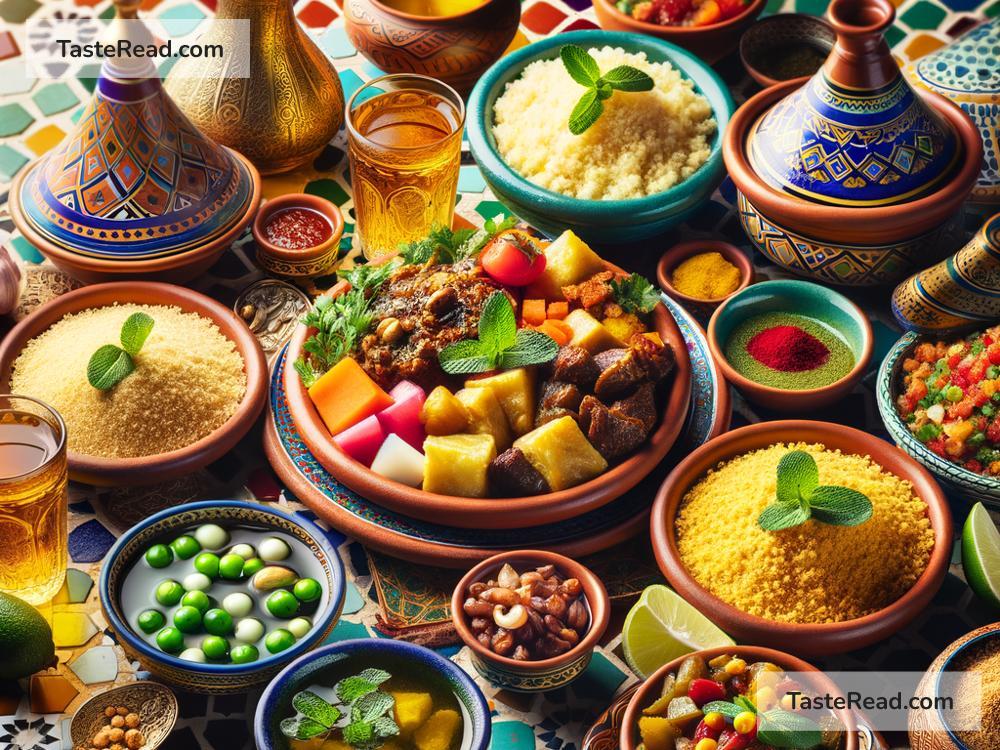Unveiling the Richness of Moroccan Cuisine: A World of Flavor
In the heart of every Moroccan kitchen lies a treasure trove of flavors that has enchanted food enthusiasts around the globe. Moroccan cuisine, with its vibrant colors, aromatic spices, and rich history, stands as a testament to the country’s diverse culture and culinary excellence. But what exactly makes Moroccan food one of the most flavorful in the world? Let’s embark on a delicious journey to uncover the secrets behind this gastronomic wonder.
A Melting Pot of Influences
Moroccan cuisine is like a tapestry woven from various cultures. Its flavors are a blend of Berber, Arabic, Andalusian, and even French influences, each adding its unique thread to the culinary fabric. This fusion creates dishes that are not only unique but also boast a complexity of flavors that can tantalize any palate.
The Magic of Spices
If there’s one thing that sets Moroccan food apart, it’s the liberal use of spices. Spices are the soul of Moroccan cuisine, and they’re used not just for flavor but also for their color and health benefits. When you step into a Moroccan kitchen, the aromas of cumin, saffron, cinnamon, ginger, and paprika hit you, inviting you into a world where food is more than just sustenance; it’s an experience. These spices don’t just add depth to the dishes; they also paint them with beautiful colors, turning every meal into a feast for the eyes.
The Ritual of Cooking
Cooking in Morocco is not just a daily chore; it’s a loving ritual that begins with the selection of the freshest ingredients and ends with the family gathering around a shared meal. The traditional Moroccan dish, Tagine, exemplifies this ritualistic approach to cooking. It’s slow-cooked in a conical clay pot, which allows the ingredients to simmer in their juices, blending the flavors to perfection. This method doesn’t rush the cooking process; instead, it celebrates it, ensuring that every bite is infused with the essence of Moroccan hospitality.
Bread and Mint Tea: The Staples of Moroccan Hospitality
No Moroccan meal is complete without bread and mint tea. Bread, or ‘Khobz,’ is central to Moroccan dining and is used to scoop up food in place of utensils. Mint tea, on the other hand, is more than just a drink; it’s a symbol of Moroccan hospitality. Served with a flourish, this sweet, minty beverage is offered to guests as a sign of welcome, ending the meal on a note of warmth and friendship.
A Diversity of Dishes
Moroccan cuisine offers an incredible variety of dishes, catering to all tastes. From the hearty Couscous, often considered the national dish of Morocco, to the refreshing salads, rich soups, and succulent kebabs, there’s something for everyone. The use of fresh fruits, vegetables, and legumes in these dishes not only adds to their flavor but also makes them wholesome and nutritious.
Seasonality and Sustainability
Moroccans have a profound respect for nature, which is reflected in their cooking. The cuisine is heavily influenced by the seasons, with dishes prepared using whatever ingredients are fresh and available. This approach not only ensures the food is at its most flavorful but also promotes sustainability and supports local farmers.
Culinary Innovation
While Moroccan cuisine is deeply rooted in tradition, it’s also constantly evolving. Chefs, both in Morocco and around the globe, are experimenting with traditional recipes, giving them a modern twist while preserving their essence. This spirit of innovation ensures that Moroccan cuisine remains relevant and continues to captivate food lovers everywhere.
Conclusion
Moroccan cuisine is more than just food; it’s a celebration of the country’s rich culture, history, and traditions. Its complexity, diversity, and the ritualistic love that goes into preparing each dish make it one of the most flavorful cuisines in the world. Whether you’re savoring a slow-cooked Tagine, relishing the fresh flavors of a Moroccan salad, or ending your meal with a soothing cup of mint tea, you’re not just eating; you’re embarking on a culinary journey that promises to be as vibrant and delightful as Morocco itself. So, the next time you have the chance to experience Moroccan cuisine, remember, you’re tasting centuries of history and culture, one flavorful bite at a time.


